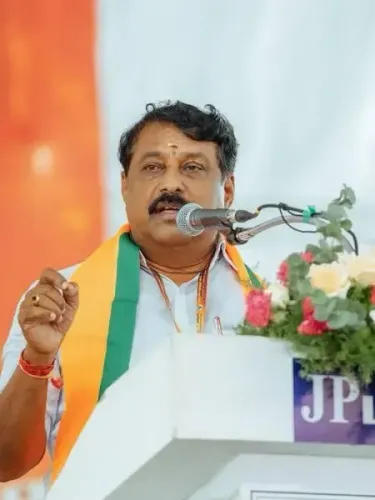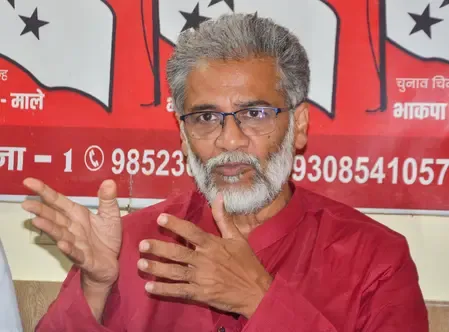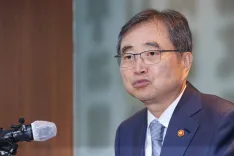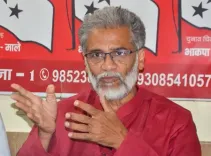Does Vedanta Indicate That You Can Be Happy Without Change? Insights from Padma Shri Acharya Jonas Masetti (IANS Interview)

Synopsis
Key Takeaways
- Vedanta teaches true happiness is independent of external circumstances.
- Youth engagement is enhanced through modern music and storytelling.
- Language barriers can hinder understanding of Vedic traditions.
- The 'Samba Shiva Festival' promotes cultural heritage among young Indians.
- Many in the West embrace Vedanta while leading ordinary lives.
New Delhi, Oct 4 (NationPress) Acharya Jonas Masetti, a Yoga guru originally from Brazil, has motivated countless individuals through his extraordinary transition from mechanical engineering to spiritual mentorship. Awarded the Padma Shri for his significant contributions to Vedic knowledge and Yoga, Acharya Masetti discusses with IANS his aspirations for cultural exchange, spiritual advancement, and the future of Yoga both in India and globally.
On promoting Vedic knowledge:
“Once you appreciate the essence of Vedanta, you come to realize that true happiness and wellness are independent of your environment, and are not influenced by external circumstances. You do not need any changes in your life to achieve happiness and well-being; this is the fundamental principle of Vedanta,” Acharya Masetti explained to IANS.
On his method of teaching Vedanta and Yoga:
“The number of institutions is increasing. We began with one, and now there are six across India. It’s not solely about Vedanta classes or music festivals; we integrate everything. Today’s youth experience bhajans fused with electronic music, alongside concise Vedanta talks and heartwarming stories. Music helps them emotionally connect, and we also showcase interviews with prominent Indian leaders sharing their life journeys,” he added.
“This is more than just a celebration; it’s a learning opportunity presented in a language that resonates with the youth. We do this out of love and appreciation for India, with the hope that through this initiative, young Indians will rediscover the significance of their own culture,” Acharya Masetti noted.
On language barriers in understanding Vedanta:
“We recognize that one of the most significant challenges in learning Vedanta and the Vedic tradition is the language aspect. Often, this tradition is misinterpreted as strictly religious or as requiring a detachment from everyday life. However, we are revealing a different perspective.
“In the West, we have over 200,000 individuals — men, women, youth, and elders — who lead ordinary lives while embracing Vedanta. They embody its principles while being fully active in society. That’s the message we aim to convey,” Acharya Masetti added.
On his encounter with Baba Ramdev:
“I haven’t had a recent meeting with him, but I am familiar with him. I first met him during Swami Dayanand’s 80th birthday celebration, where I participated in some seva. It was a memorable experience. Since receiving the Padma Shri, I haven’t had the opportunity to reconnect with him. I would love to meet him again and other masters who are making unique contributions.
“I view myself as a Western ambassador — someone who can illustrate how the West perceives and values their culture,” he stated.
On initiatives in India:
“After being honored with the Padma Shri, my family and I felt a strong urge to give back to Bharat. We decided to initiate the ‘Samba Shiva Festival’ — an intercultural event that will take place at major universities across India. Its goal is to assist young individuals in rediscovering the richness of their own cultural heritage,” Acharya Masetti proclaimed.









